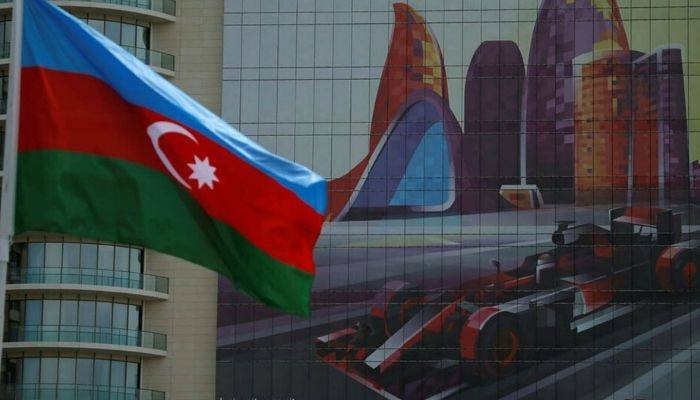Azerbaijan, a close ally of Turkey and fellow denier of the Armenian Genocide, has actively sought the eradication of the region’s indigenous Armenian inhabitants and traces of their millennia-old civilization.
Azerbaijan’s burgeoning relationship with Israel has long been predicated on the false narrative that Azerbaijan is a “country of tolerance.” Azerbaijan has often paraded the existence of a small, but vibrant, Jewish community in the country as a testament to its commitment to diversity and tolerance.
However, Azerbaijan, a dictatorship based on petrodollars that has been ruled by the same family for over a half-century, is anything but that.Azerbaijan, a close ally of Turkey and fellow denier of the Armenian Genocide, has actively sought the eradication of the region’s indigenous Armenian inhabitants and traces of their millennia-old civilization.
Throughout Soviet occupation, the Azerbaijani SSR denied cultural, political, linguistic and economic rights to the Armenians of Artsakh (also known as the Nagorno-Karabakh) and Nakhijevan, and in the late 80s and early 90s, Azerbaijani authorities started to engage in government-backed pogroms and massacres of Armenians in Azerbaijan to suppress calls for Artsakh’s independence. These pogroms also targeted Jewish communities, which began to flee Baku en masse in response to the increasing incidents of harassment.
Azerbaijan’s assault on the region’s Armenians ultimately culminated in a full-scale war which ended with a ceasefire that effectively secured the establishment of an independent and democratic Artsakh.
For the last 30 years, the Azerbaijani government has frequently deployed rhetoric advocating for the ethnic cleansing of Armenians in Artsakh and the Republic of Armenia itself – regularly referring to Armenians as enemies of the state – and denying the thousands of years of Armenian civilization in the region.
Throughout the early 2000s, some 28,000 Armenian cultural monuments in Nakhijevan were destroyed by Azerbaijan as part of an unprecedented cultural genocide. Independent reports have also found that Armenophobi – or anti-Armenian sentiment – has become so entrenched in government, media, and state institutions that an entire generation of Azerbaijanis have grown up listening only to hate speech towards Armenians. This dissemination and inculcation of hatred has incited shocking incidents of violence against Armenians, including that of Ramil Safarov, an Azerbaijani soldier who murdered a sleeping Armenian soldier during a NATO English-language training program in Hungary.
Safarov was extradited to Azerbaijan six years into a life sentence handed down by Hungarian courts – but upon his arrival was pardoned, promoted in rank and lauded by the media as a national hero for doing his Azerbaijani patriotic duty by killing an Armenian.
Over the course of this week, Azerbaijan has engaged in major acts of aggression against the Republic of Armenia itself, targeting civilian populations with heavy artillery and drones. In Azerbaijan, tens of thousands came to the streets chanting “Death to Armenia” and calling for a war with Armenia. These scenes, the result of the Azerbaijani government’s decades of propagating Armenophobia, are all too reminiscent of the virulent antisemitism expressed in neighboring Iran.
The institutionalization of state-sponsored racism towards Armenians should be an immediate cause of concern for any nation that has not only experienced genocide, but continues to struggle against the promulgation of racist and discriminatory rhetoric by those who deny it its fundamental right to exist. But in addition to Azerbaijan’s flagrant disregard for minority rights, the country has also long worked against the strategic interests of Israel.
AZERBAIJAN HAS been found to have funneled substantial amounts of money into sanctioned Iranian businesses as part of the “Azerbaijani Laundromat” corruption scandal.
Similarly, Azerbaijan’s major oil pipeline is 10% owned by Iran – allowing the country to bypass international sanctions and to profit from Azerbaijan’s oil industry.
Additionally, despite its overtures to Israel with respect to weapons contracts, oil supply and the monitoring of Iran, Azerbaijan has succumbed to regional pressure when it comes to issuing political support for Israel – particularly in the forum of the UN.
Azerbaijan has also refused to open an embassy in Israel due to regional pressure. On the other hand, Armenia has consistently taken tangible steps towards good faith relations with Israel – including a commitment to establish an embassy in Tel Aviv.
Given that Armenia has been made partially reliant on Iran due to the fact that 80% of its borders are under illegal blockade by Turkey and Azerbaijan, it is clear that – unlike Azerbaijan – Armenia will not succumb to the pressure of malign regional actors when it comes to building relations with Israel.
Armenia, like Israel, has long fought for its very right to exist in a hostile region of states that would revel in its destruction, and has – against all odds – established vibrant democratic states in a sea of dictatorships.































